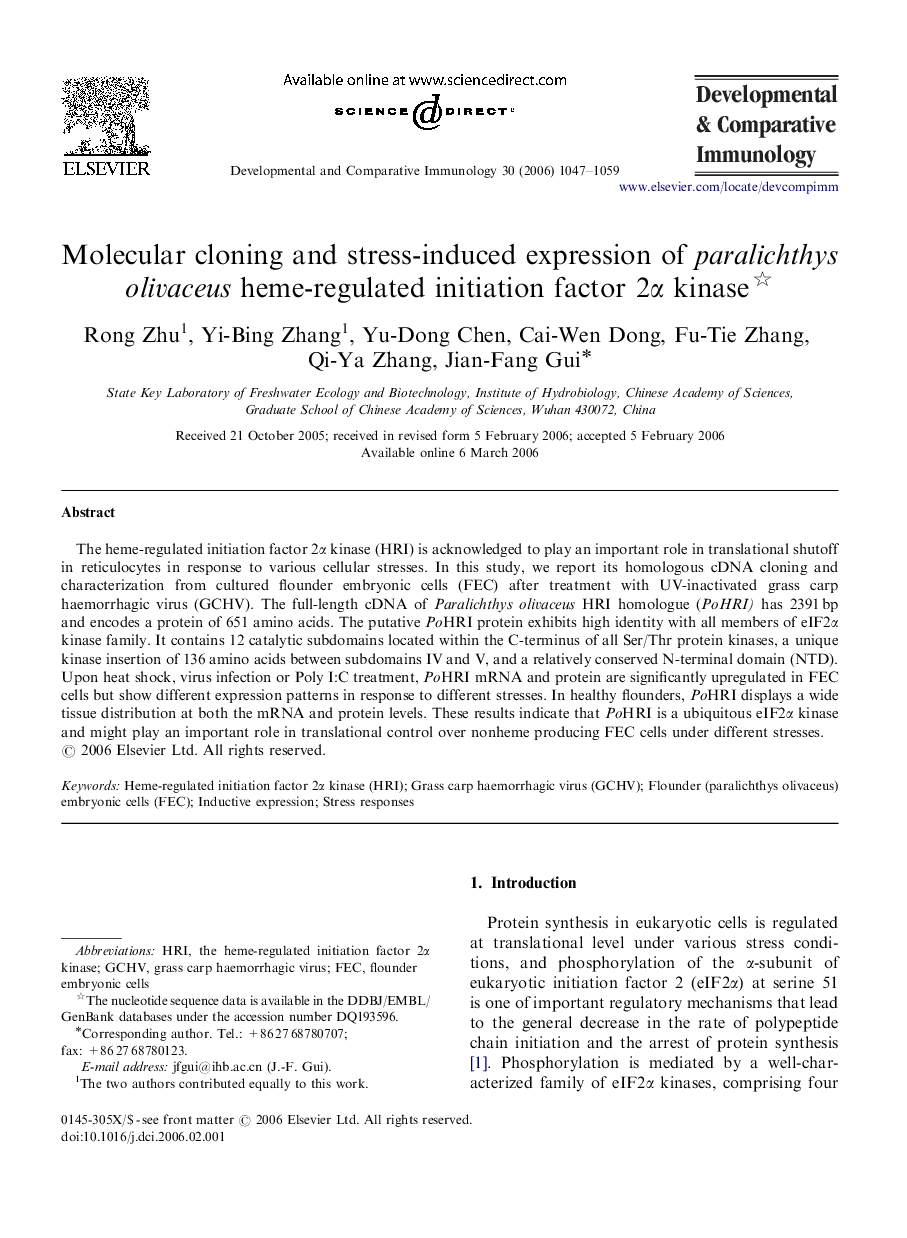| Article ID | Journal | Published Year | Pages | File Type |
|---|---|---|---|---|
| 2430422 | Developmental & Comparative Immunology | 2006 | 13 Pages |
Abstract
The heme-regulated initiation factor 2α kinase (HRI) is acknowledged to play an important role in translational shutoff in reticulocytes in response to various cellular stresses. In this study, we report its homologous cDNA cloning and characterization from cultured flounder embryonic cells (FEC) after treatment with UV-inactivated grass carp haemorrhagic virus (GCHV). The full-length cDNA of Paralichthys olivaceus HRI homologue (PoHRI) has 2391 bp and encodes a protein of 651 amino acids. The putative PoHRI protein exhibits high identity with all members of eIF2α kinase family. It contains 12 catalytic subdomains located within the C-terminus of all Ser/Thr protein kinases, a unique kinase insertion of 136 amino acids between subdomains IV and V, and a relatively conserved N-terminal domain (NTD). Upon heat shock, virus infection or Poly I:C treatment, PoHRI mRNA and protein are significantly upregulated in FEC cells but show different expression patterns in response to different stresses. In healthy flounders, PoHRI displays a wide tissue distribution at both the mRNA and protein levels. These results indicate that PoHRI is a ubiquitous eIF2α kinase and might play an important role in translational control over nonheme producing FEC cells under different stresses.
Related Topics
Life Sciences
Biochemistry, Genetics and Molecular Biology
Developmental Biology
Authors
Rong Zhu, Yi-Bing Zhang, Yu-Dong Chen, Cai-Wen Dong, Fu-Tie Zhang, Qi-Ya Zhang, Jian-Fang Gui,
